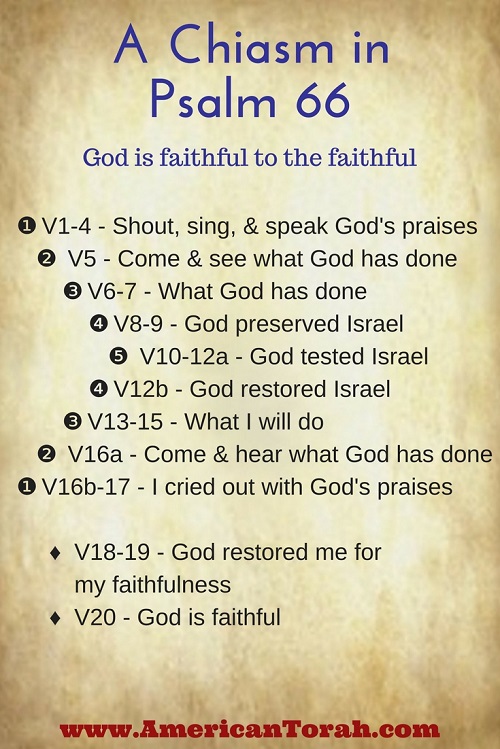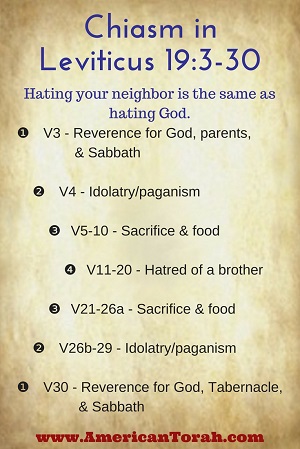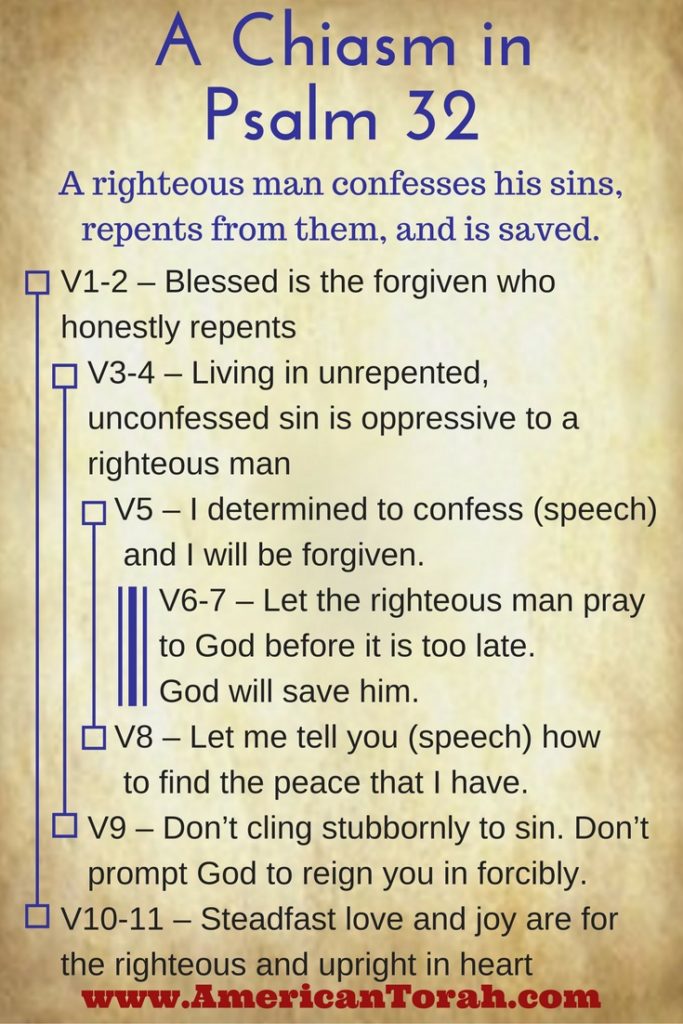Unless YHWH builds the house, those who build it labor in vain. Unless YHWH watches over the city, the watchman stays awake in vain.
Psalms 127:1
Every man who builds a house employs tools, resources, and a plan to do it. Nobody successfully builds a house without at least those three elements. A humble house might be constructed from humble materials and no more tools than a hammer and saw, but those are still materials and tools. When YHWH himself builds a house, he does so through the hands and means of men. We don’t get to sit on our hands, pray for a house, and expect God to magically make it happen.
God rewards action. Like it or not, God absolutely does help those who help themselves as much as they are able.
Health and medicine are no different. God heals, but he primarily heals through people and medicine, not prayer alone. There are exceptions, of course, but even those exceptions require someone to do something, like pray and anoint with oil. The purest faith is merely a skeleton for the muscles, organs, and ligaments of action, and there’s no sin in taking action for your own health by enlisting the help of medical professionals and even pharmaceuticals.
Plan for COVID
Having laid out my personal objections to the COVID vaccines a few weeks ago, I now have the distinct–but far from unique–privilege of writing about my personal experience with the disease itself and offering some further advice on what to do if you are exposed or get sick. Allow me to begin by making a couple of obvious observations:
- I am still not a doctor, virologist, immunologist, or any other medical or health expert. I didn’t get an MD or PhD or achieve any other sort of formal educational milestones in the last few weeks.
- This article is a dramatic departure from almost everything else I’ve written on this website in that it is mostly practical with little conscious theological content. I just think it’s important enough to put it out there anyway, especially considering the topic of my last article.
I’m no fitness junkie or anything like that, but I try to take care of myself. I have some health issues, but, thanks to the help and support of my amazing wife, I’m reasonably fit for my age. I eat a fairly balanced diet without much junk food. I don’t drink much and I don’t smoke at all, never have. I’m not obese or diabetic. I work out on a pretty regular basis, and I have a small garden.
And yet COVID seriously kicked my butt.
It’s a worldwide endemic at this point, so just about everyone’s probably going to get it eventually. I knew I couldn’t avoid it forever. What I didn’t expect was that it would completely knock me for a loop for two solid weeks. I thank God that I didn’t have it as bad as some, but it was more than bad enough.
It started with a fever and chills that came and went almost at random for a couple of days. A home COVID test was negative, but I knew that I had spent a few hours around someone who tested positive just a few days before the fever started. I was pretty sure that’s what it was.
Almost from the beginning, I could feel a slight tickle in my lungs. It seemed like just a little dry cough. I had chronic bronchitis when I was younger, so I had a pretty good idea of what constituted a danger sign and what didn’t, and this didn’t seem like a big deal.
My skin started getting sensitive after a day or two (cutaneous hyperesthesia, I think it’s called), especially everywhere with hair. It started on my scalp, then spread to my forehead, torso, arms, and thighs. It was like a mild sunburn over about 80% of my body. Then the fever got crazy. Paula was wrapping my head in ice packs at one point. It wasn’t like the flu. I didn’t have nausea at all. My sense of taste changed, but never went away. For a few days everything was unbearably salty, and then water tasted…weird. Still does a bit. By the end of the first week, I was physically, mentally, emotionally exhausted–I spent most of every day laid out on the sofa–but it never seemed life threatening.
The cough started getting worse, and on day 7, my doctor wanted me to get a CT scan, just in case. It turned out I had pneumonia in both lungs, and I really started to feel it a couple of days after that.
Someone was able to get us some Ivermectin, which I started taking on the 3rd day, and I had been filling myself full of zinc and vitamins C & D and other supplements from the start. We had a nebulizer and some albuterol on hand since a couple of family members have asthma, so I started using that. Nothing seemed to be helping. The waves of fever and chill kept coming. The skin sensitivity kept spreading and the cough kept deepening.
But I was also determined to stay out of the hospital. As hard as it may be to accept, most of our medical establishment is so locked into rigid, corporate dogma, that they are incapable of thinking beyond it. When it works, it works great, but the hospital system doesn’t work well at all with COVID.
Fortunately, I had access to some great doctors and nurses who focus on doing what works and not checking off all the approved boxes. It is now day 19 of my personal COVID adventure, and between the great medical care, my wife, and God’s Providence, I am well on my way to recovery now. The fever and sensitivity are long gone. The pneumonia appears to be gone, although I still have a cough. It will probably be weeks before I’m back to full strength, but I’m confident that I’ll get there.
In retrospect, there are things I could have done differently that would have saved myself a lot of trouble and could have cut the recovery time dramatically, if I had been a little more prepared. Mistakes are for learning, right? And what’s learning for if not to help someone else not make the same mistakes? So here’s my non-professional, non-scientific, non-guaranteed advice to you for dealing with COVID exposure and illness.
Pre-COVID Exposure
There are some things you need to get in order now. If you wait until you’ve been exposed to COVID or you have symptoms, then you’ve waited too long.
- Connect with community. If you aren’t part of a solid faith community, get connected now. Bookmark this article, go find yourself a church, synagogue, home fellowship…whatever…and commit to becoming an active part of it. If you’re not sure how to do that, start here.
- Find a doctor (or RNP, PA, etc) who understands the FLCCC’s I-MASK+ Protocol and is willing to prescribe a few things in advance. Working with a smart healthcare professional is important on this point. The FLCCC protocol recommends a number of medications and supplements, and everyone will react differently to these things. Your care provider can help you sort through it all and adjust things as needed. Work with a functional medical doctor or nutritionist (not just any doctor or nutritionist) if you can.
- Get that doctor to prescribe Ivermectin, Albuterol (for use with a the nebulizer, not a pump inhaler), and a nebulizer/compressor now. If the only Ivermectin you can get is from the local feed store, that’s better than nothing. It’s mostly the same stuff that you’d get from a pharmacy, but the quality, consistency, formulas, etc., will be more variable. It also won’t be in a pill, so you’ll have to calculate the correct dose for your body weight. It’s better just to get the “official” stuff if you can. Get a daily-dose loratadine (aka Claritin) and the dietary -supplements recommended by the FLCCC protocol.
- Get a medical air compressor and nebulizer like this one. If you have to deal with respiratory symptoms, you will absolutely need it. Better to mail order one before you need it, then to be hunting all over town at the last minute. For some bizarre reason that probably has to do with lobbyists and crooked politicians, you might need a prescription for the better quality compressors. You can get that from the same doctor who prescribes the Albuterol, which will be totally useless without this equipment. You can probably get a lesser quality one (that still might be good enough and definitely better than nothing!) from Amazon or other online retailer without a prescription.
- Identify a local clinic where you can get a COVID test and monoclonal antibodies treatment (if it becomes necessary). Ideally, this will be the same as the doctor you identified above, but it doesn’t have to be. The urgent care clinics that are everywhere these days are probably your best bet, but you’ll need to do some calling around. They don’t have a vested interest in putting you in a hospital, so they’re much more likely to give you what you actually need rather than what some bureaucracy tells them you need.
- Be healthy. This is mostly a no-brainer. You are probably deficient in multiple nutrients already. Start taking extra vitamin C & D now. Don’t take tons of just anything, though, because excess amounts of some nutrients can be harmful. If you have any chronic health conditions, especially respiratory issues, don’t skimp on treatment if you can help it. If you’re obese, lose weight. If you’re diabetic, keep it under strict control. If you have allergies, take your daily antihistamines or whatever you take, and don’t skip it. You get the idea.
COVID Exposure
There are two keys to handling exposure to COVID:
- Don’t expose yourself to COVID if you can reasonably help it. You can’t avoid everyone. You can’t hide away in a cave. Don’t suspect anyone with a cough of having COVID. If you know that someone has COVID or recently had it, be somewhere else if you can. Masks and vaccines will not protect you. The vaccines appear to reduce symptoms in a small percentage of people, more so for people over seventy years old, but they do not keep you from getting COVID and–more importantly–they don’t keep you from passing it on to other people.
- Take pre-emptive action. The best defense is a good offense. If you know you’ve been exposed to COVID, start taking zinc, C, & D. If you aren’t actively working with a functional medical professional, then be cautious. It’s hard to OD on vitamins C & D–go crazy with both of those, at least in the short term–but you can seriously hurt yourself with some others if you aren’t careful. In addition to regular supplements, start a preventative dose of Ivermectin. Again….talk to your doctor about doses, etc.
COVID Illness
If all else has failed and you’ve contracted COVID, do not wait to begin treatment! If you’ve been exposed and you have symptoms, assume you’ve got it, even if a home test shows negative.
- Get a real test. The home tests are “iffy”. You can get one at almost any urgent care clinic and many other places beside. If you identified the doctor and clinic as I recommended above, get it done there. They can prescribe the rest of what you need. Refer back to that FLCCC protocol I mentioned above too.
- Get lots of rest, but don’t just lay in bed all day. Your body needs to move to be healthy.
- If things are still looking bad or haven’t improved at all by day 5, seriously consider getting a monoclonal antibodies infusion. It will cause a about a day of high fever and misery, but if you’re risking hospitalization otherwise, I recommend doing it.
- Keep talking to your trusted medical professional. That’s not me because I’m not kind of medical professional at all. I gave you some highlights of the course I recommend you follow, but I didn’t list every detail, every contingency, everything that could go wrong. Mostly because I don’t have a clue about all that. I have my unique health issues, and you have yours. What worked for me might not work for you. I talked to my doctor, my nutritionist, and other healthcare professionals whom I knew I could trust, and I followed their advice. You should do the same.
Do Your Homework, but Don’t Trust in Yourself
Don’t forget God and don’t forget your friends and family. Pray, sing, worship. Keep everyone posted on your progress. They don’t need an hourly play-by-play, but you might be surprised at how many people really do care about you and want to help. Somebody out there wants to run some errands for you or deliver some meals. It’s good to be prepared for yourself, but you need to be taken care of too, and your community needs to be needed.
I’m sure there’s lots more I could say, but this is already so far outside of my norm and my areas of expertise, that it’s already more than I’m entirely comfortable with. I’m no health expert. I’m just another person who went through some stuff, and I hope you do better with it than I did. Take it all with spoonful of sugar and a healthy dose of your own research.





 This is very similar to another, much larger, chiastic structure in Exodus 25-40. In that instance, the idolatry of the golden calf, after which God commanded the faithful of Israel to kill their own brothers, is set between the stone tablets, Sabbath, and instructions for the Tabernacle. See more details on that chiasm
This is very similar to another, much larger, chiastic structure in Exodus 25-40. In that instance, the idolatry of the golden calf, after which God commanded the faithful of Israel to kill their own brothers, is set between the stone tablets, Sabbath, and instructions for the Tabernacle. See more details on that chiasm 

